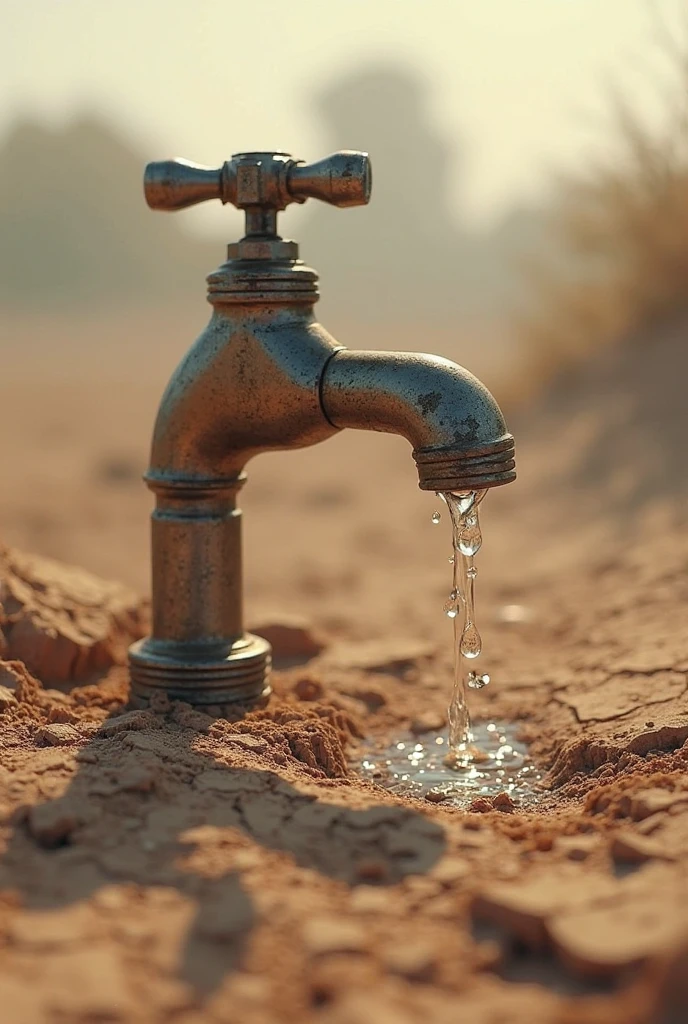W3: "A Day Without Water" (Supports SDG 6)
The day started like any other, until I turned on the tap. Confused, I checked my phone, and that’s when I saw the message from the local council, stating that the water cut will last for the next 24 hours.
Panic set in. We had no stored water. We didn’t even fill a pail the night before. I stared at the screen, rereading the message like it would change if I blinked hard enough. I’d never once imagined what a day without clean water would look like, but I was about to find out, the hard way.
I brushed my teeth with bottled water we found at the back of the pantry—probably expired, but we had no choice. Washing my face felt like a luxury, and a cold one at that. The usual hot morning shower? Gone. We have to skip making rice because it needs rinsing first, and even instant noodles were off the table. Our breakfast was reduced to dry bread and a banana. School was cancelled. The toilets couldn’t flush, the cafeteria couldn’t prepare food, and the science labs couldn’t function without access to clean water. I never thought I'd miss school, but being home with no proper bathroom use and sticky skin made me wish I were in class. My friend texted, saying his grandmother’s dialysis session at the hospital was postponed due to water shortages. Imagine that—life-saving treatment, paused because there’s no water.
In the afternoon, we tried to wash some vegetables using water left in the rice cooker from yesterday. Every drop felt like gold. My dad, who works at a nearby farm, came home early. Without water, irrigation had halted, and the livestock couldn’t be cleaned or properly hydrated. He looked more stressed than I’d seen him in a while. He said if this went on even for another day, the crops could suffer, and the animals might fall ill. A few neighbors gathered to brainstorm. One uncle suggested setting up buckets and tubs to catch rainwater, though the skies were stubbornly clear today. Others offered to share what little water they had stored in tanks. Someone even talked about purifying water from the nearby river using charcoal and sand. Suddenly, our community, which usually kept to itself, felt united by desperation. A group of kids took it upon themselves to go door-to-door checking on the elderly, bringing spare bottles where they could. It was heartwarming, until I remembered that it took a crisis for us to even speak to each other.
In the evening, our dinner was basic. just some crackers, peanut butter, and fruits. We didn’t even bother washing the dishes. Just wiped them down with tissues and set them aside. Our hands felt constantly dirty, and I noticed how irritable everyone was getting. A single droplet of clean water is worth more than a pound of pure gold.
At night lying in bed, my skin feels sticky, I'm thirsty, and uncomfortable. But more than that, I feel ashamed. We’ve lived all our lives just assuming water would always be there. I never thought twice about running the tap while brushing my teeth, or taking long, hot showers. But now, I can’t stop thinking about the people in other parts of the world who live like this every single day—not just for one inconvenient, uncomfortable day, but every day of their lives.
Today taught me more than a textbook or a lecture ever could. I never ever realized how I was taking everyday clean water for granted. Clean water isn’t a privilege. It’s a right. And it’s one we’ve taken far too lightly. Tomorrow, when the water comes back, I know things will slowly return to “normal”, but I don’t want to forget what this day felt like. We need to be smarter, more grateful, and more careful with how we use this most precious resource.
Because one day without water was more than enough to change how I see the world forever.
United Nations. (n.d.). Goal 6: Ensure availability and sustainable management of water and sanitation for all
https://sdgs.un.org/goals/goal6
AI Generated Image
https://www.seaart.ai/




Comments
Post a Comment